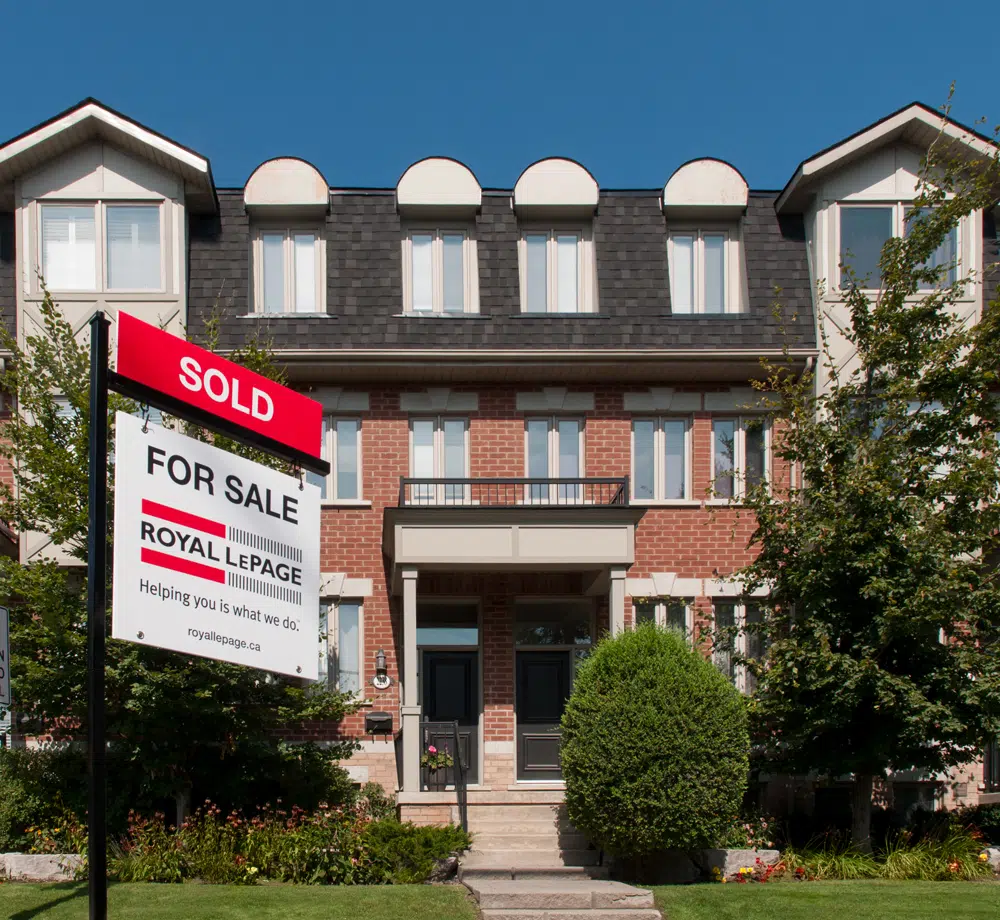Royal LePage is softening its home price forecast amid rising interest rates and economic uncertainty.
But the real estate company says home prices are still expected to end the year higher than in 2021.
Its latest House Price Survey, released Wednesday, shows the average price of a home will increase by five per cent this year to $817,950.
That is down from the 15 per cent increase forecast in Royal LePage’s last survey released three months ago.
“Some of the heat that was driving the market cooled during the [second] quarter as rising interest rates coupled with economic uncertainty undermined consumer confidence and pushed buyers to the sidelines,” Phil Soper, president and CEO of Royal LePage, said in a news release.
“Following record price gains across the country, numerous markets in southern Ontario and parts of Greater Vancouver – specifically those that saw some of the highest price appreciation over the last two years – experienced a second-quarter decline.”
The aggregate price of a home in Canada increased by 12.1 per cent year-over-year in the second quarter to $815,000.
But that was down by 4.9 per cent on a quarterly basis, the first quarter in more than three years to post a quarter-over-quarter decline in home prices.
“I expect this highly unusual downward movement in home values will be short-lived as the country’s chronic housing shortage has not been resolved,” said Soper.
However, not all regions of Canada saw their home prices go down during the second quarter.
Prices continued to climb in Atlantic Canada and the Prairies, which Royal LePage said is due to interprovincial migration.
New Brunswick’s three largest cities saw price increases of between three and seven per cent. Prices climbed to a median of $287,200 in Saint John (up 4.5 per cent), $352,100 in Fredericton (up 7.3 per cent) and $395,900 in Moncton (up 3.4 per cent)
In Nova Scotia, median prices increased by 3.2 per cent during the second quarter to $525,800.
Royal LePage also cautioned policymakers that growing inventory is masking an acute urgency to solve Canada’s housing supply crisis.
“Although demand has temporarily weakened, Royal LePage is concerned that this short-term reprise from rapidly rising home prices may cause decision makers to shift their attention to other issues, thinking Canada’s housing supply crisis can wait — it cannot,” said Soper.
“The current market correction will create pent-up demand. A growing domestic buyer pipeline coupled with the need to house hundreds of thousands of new Canadians threatens to far outstrip the tepid pace of new home construction.”








